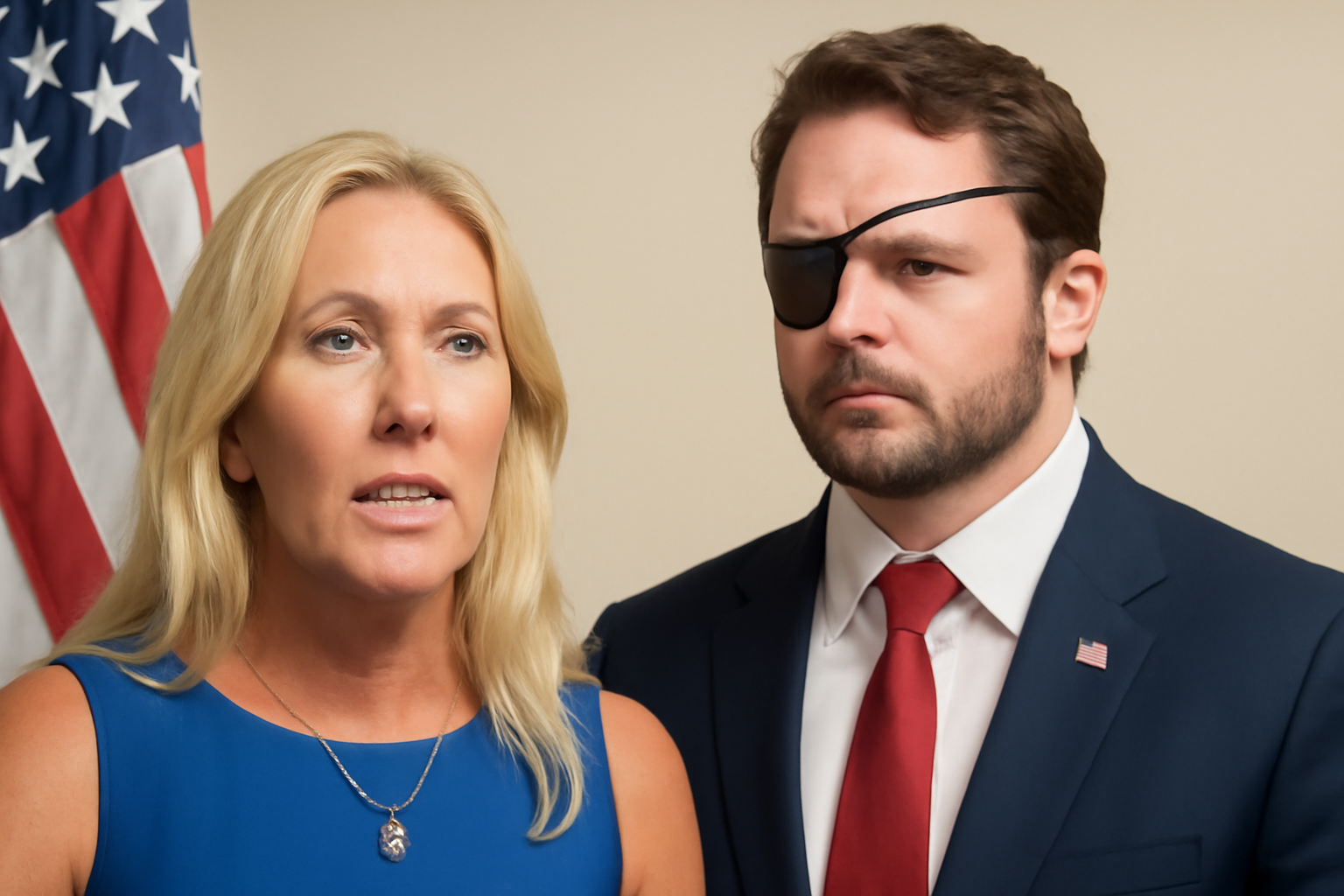
Introduction
In a recent legislative development, Representatives Marjorie Taylor Greene of Georgia and Dan Crenshaw of Texas have introduced a bill aiming to restrict Medicaid from covering gender-affirming care for transgender minors. This proposed legislation seeks to prohibit federal funds from being used for treatments such as puberty blockers, hormone therapy, and gender-affirming surgery, which are considered crucial by many healthcare professionals for treating gender dysphoria in transgender youth.
Details of the Proposed Bill
The bill, titled the "Do No Harm in Medicaid Act," is being presented as a fiscal measure, which its sponsors argue could allow it to bypass the traditional Senate filibuster. This procedural maneuver could enable the bill to become law with only a simple majority vote in the Senate, circumventing the usual requirement of 60 votes needed to close debate on most legislation.
"Using Medicaid funds for unproven and irreversible procedures on minors is not only medically irresponsible but also a betrayal of public trust," Crenshaw stated. He emphasized that the bill ensures Medicaid's resources are reserved for "evidence-based, medically necessary care." However, this characterization of gender-affirming care as "unproven" contradicts the consensus of major medical organizations, which recognize such treatments as both safe and effective for managing gender dysphoria.
Responses from Medical and LGBTQ+ Advocacy Groups
The proposed legislation has sparked significant controversy and backlash from LGBTQ+ rights organizations and medical professionals. The Human Rights Campaign (HRC), an influential LGBTQ+ advocacy group, has condemned the bill. Kelley Robinson, president of the HRC, stated, "Everyone deserves the freedom to make deeply personal health care decisions for themselves and their families—no matter your income, zip code, or health coverage. This bill is a brazen attempt to put politicians in between people and their doctors, preventing them from accessing evidence-based healthcare supported by every major medical association in the country." Robinson emphasized that decisions regarding gender-affirming care should be made by patients and their healthcare providers, not politicians.
State and Federal Dynamics
Medicaid coverage decisions are typically determined by individual states within federal guidelines, allowing for variations in coverage for gender-affirming care. Many states already provide such coverage, reflecting the medical community's support for these treatments. Critics of the bill argue that federal intervention is unnecessary and undermines state discretion.
Interestingly, the bill includes provisions allowing cisgender individuals access to gender-affirming procedures under certain conditions, highlighting a perceived double standard in its application.
Political Strategy and Implications
The Republican majority in both the House and Senate has facilitated the introduction of this bill. House Speaker Mike Johnson has previously expressed his opposition to gender-affirming care, echoing sentiments that deny the legitimacy of transgender identities. "A parent has no right to sexually transition a young child," Johnson stated, reinforcing his stance against gender-affirming treatments for minors.
To bypass the Senate filibuster, Crenshaw and Greene are leveraging the reconciliation process, typically reserved for budget-related legislation. This strategic approach requires only a simple majority for passage, a tactic previously used for significant fiscal policies.
The bill could potentially be signed into law by former President Donald Trump, who has publicly opposed government funding for gender-affirming care and advocated for its restriction across various settings, including prisons.
Conclusion
This legislative proposal represents a narrower version of Greene's earlier "Protect Children’s Innocence Act," which sought broader restrictions on transgender healthcare. As the bill progresses, it faces scrutiny from both opponents who view it as discriminatory and supporters who argue it protects minors from irreversible medical procedures. The outcome of this legislative effort will significantly impact the accessibility of gender-affirming care for transgender individuals, particularly those reliant on Medicaid.
Stay informed with updates on this and other critical issues affecting the LGBTQ+ community by subscribing to our newsletter.
Related Posts
Triumphant Trans Woman Wins Legal Battle and Inspires Others to Stand Up for Their Rights
Breaking new ground: a landmark victory in transgender rights After battling in courtrooms and enduring endless challenges, Diana Portillo, a transgender woman, has secured a monumental victory in her decade-long fight against workplace discrimination. The result? Nearly $1 million awarded in a historic settlement. But this isn't just a win on paper—it represents a powerful precedent in combati [...]
Pride Month in Latin America: Protests and Demands for Equality
**Celebrating Pride and advocating LGBTQ+ rights in Latin America** Pride Month in Latin America was a lively mix where celebration met activism. Communities united, not just throwing a party but making a stand—demanding equality and pushing governments toward better protection and rights recognition. Throughout Latin America, pride events erupted in marches and cultural displays, each with a c [...]
Transgender Erasure Actions Implemented by National Park Service
```html Trump administration's impact on national park service and transgender recognition The Trump administration made notable moves in undermining transgender representation, which included directing agencies like National Park Service not include "T" and "Q" when they refered “LGBTQ” in any official communication. This move seems part a broader plan by this administration aimed at reducin [...]